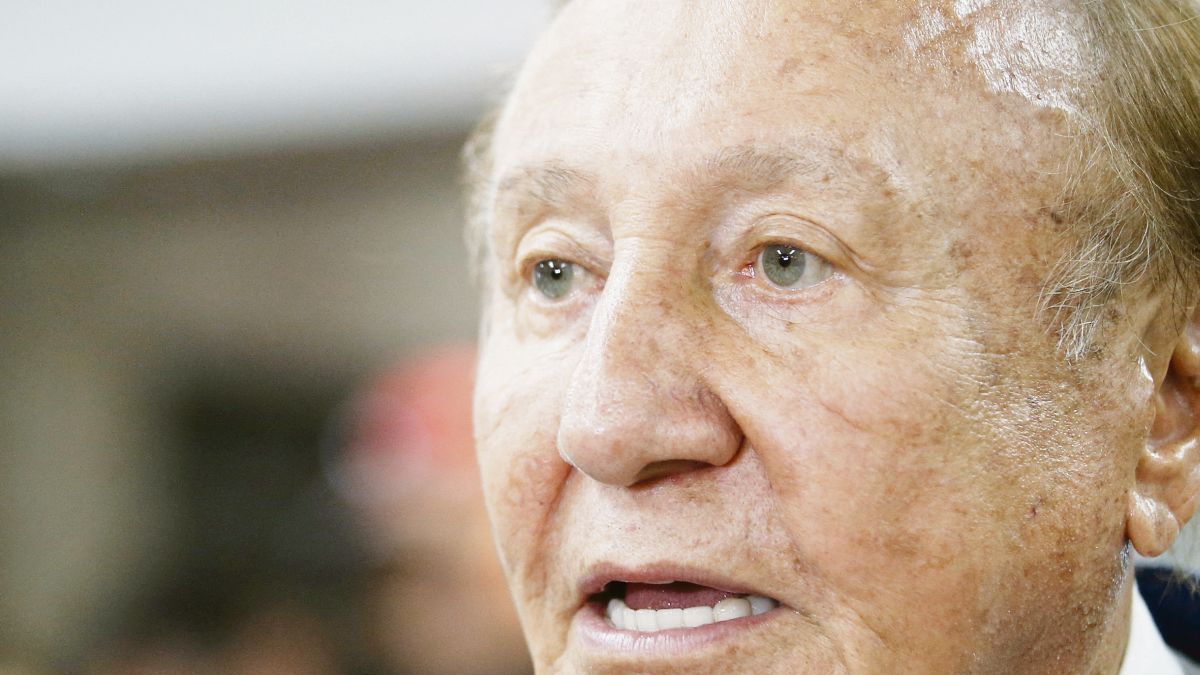Reasons for frustration are not lacking. During the last decades, Colombia has experienced an economic growth that, although it has not been explosive, is notable for having coexisted with scourges such as drug trafficking and the armed struggle. And it did so to such an extent that today, with only three million more inhabitants than Argentina, it rivals Argentina for second place among the largest economies in South America.
Distribution
The model, however, explains those complaints. According to the Organization for Economic Cooperation and Development (OECD), the so-called “club of rich countries” – which it has joined – places the country as one of the most unequal in terms of income distribution.
To this is added that poverty affects 39% of the 50 million inhabitants, unemployment affects 17% of the active population and labor informality ranges between 43% and 60% estimated by the OECD itself. Through the war in Ukraine, year-on-year inflation climbs to almost 10%, while the conservative government of the unpopular Iván Duque promises to limit it to a still very high 7% by the end of the year.
Finally, about half of older adults do not have retirement coverage.
In this context, the access of the low-income population to education and health is very complicated and violence linked to common delinquency, drug mafias and guerrillas – the National Liberation Army, ELN, continues to prevail. and factions of the Revolutionary Armed Forces of Colombia, FARC, which did not accept the 2016 peace agreement.
Punishment
It is therefore not surprising that the representative of the conservative right winger, Federico “Fico” Gutiérrez, came in third place, with 23.9% of the votes, and was left out of the ballot on June 19.
In that instance, the two champions of change will face each other hand in hand: Petro –40.3%– and Hernández –28.2%–. The latter, emerging from a right that is more difficult to define – Trumpist or simply populist? – aspires to capture everything that goes between the center and the hard right to deliver the final blow.
Traits
Defining Hernández, 77, is not easy, both because of his profile and because of his contradictions. He calls himself an “outsider”, but he has already been mayor of Bucaramanga between 2016 and 2019. He does not speak of “caste”, but resembles Javier Milei when he attacks traditional politicians, whom he calls “drones”, “vagabonds”, “scoundrels” and “thieves”. Likewise when he promises to donate his salary if he is elected president.
However, unlike the Argentine minarchist, for him economic liberalism is not a mandate and he proposes to maintain subsidies to food producers – as long as they increase their production – and protect them, taxing imports. However, the first thing, the subsidies, would have a market nuance, since they would be channeled through low-rate bank loans.
His vulgar and violent language –he came to hit a councilor in public who accused him of corruption–, his character as a construction businessman, his fortune –much smaller, about 100 million dollars– and his obsession with doing politics and campaigning Outside of traditional channels and well within social networks – he self-proclaimed “king of TikTok” – they resemble Donald Trump. He also the indecipherable mixture of crude capitalism and protectionism that he defends. And the permanent changes in posture, which confuse their own and others.
contradictions
For Hernández, the best thing is for women to “support from home”, because “stuck in the government, people don’t like it”. However, her vice is a woman, Marelen Castillo, who is not exactly a housewife: 53 years old, she is an engineer, has a degree in Biology and Chemistry, a master’s degree in Business Administration and a doctorate in Education. In addition, the candidate promised to name a joint cabinet.
On the other hand, within the framework of a vague and seemingly improvised program, he went from repudiating the peace agreement with the FARC signed by Juan Manuel Santos to promising its full application, as well as its extension to the ELN.
His relationship with both guerrillas is complex. His father was kidnapped for more than three months for the first time, until he was released; her adoptive daughter Juliana – the only woman among four brothers – was kidnapped in 2004 by the latter and her refusal to pay a ransom of 2 million dollars made her disappear since then and was left for dead.
Less dramatically, he has successively opposed and supported “fracking” and the use of pesticides in agriculture. He also declared himself in 2016 “an admirer of the German thinker Adolf Hitler”, which he clarified later. The object of his devotion was, in truth, Albert Einstein, the true author of the phrase he had quoted that ill-fated day.
Colombia is looking for a change and it is likely that Hernández will find it easier than Petro to find the votes he lacks to gain access to the House of Nariño. His eventual rise would imply a strange search for renewal, given through a man who, whether as a businessman or as a politician, never ceased to be part of the “establishment.”
In less than three weeks that country and the entire region will know the verdict.
Source: Ambito
David William is a talented author who has made a name for himself in the world of writing. He is a professional author who writes on a wide range of topics, from general interest to opinion news. David is currently working as a writer at 24 hours worlds where he brings his unique perspective and in-depth research to his articles, making them both informative and engaging.




